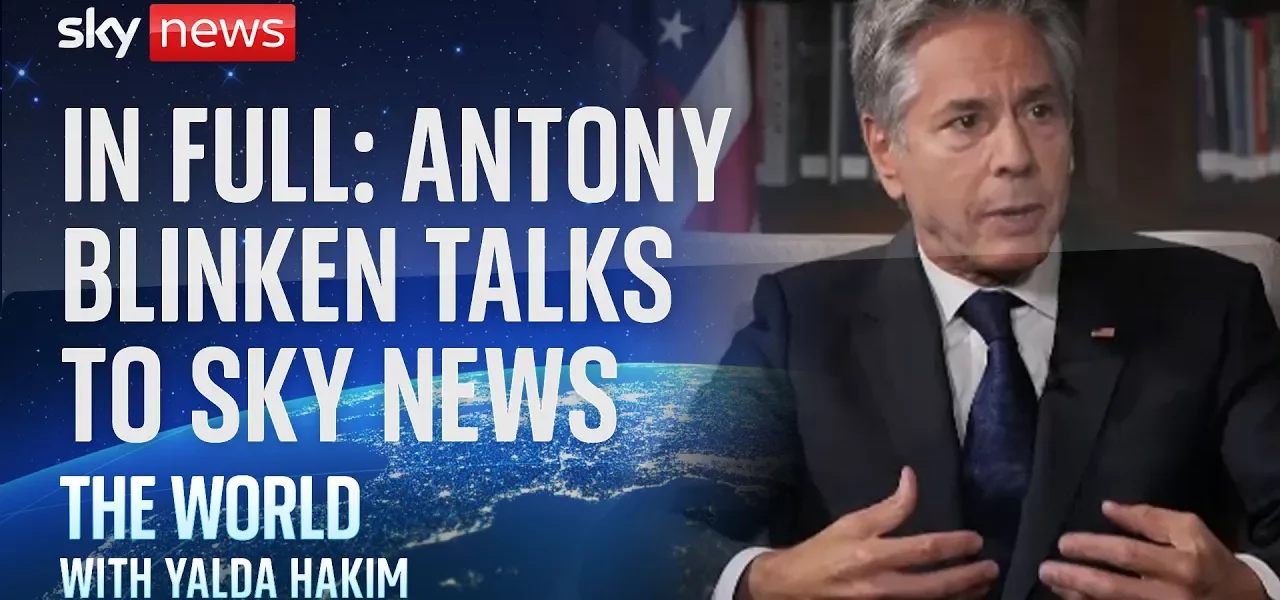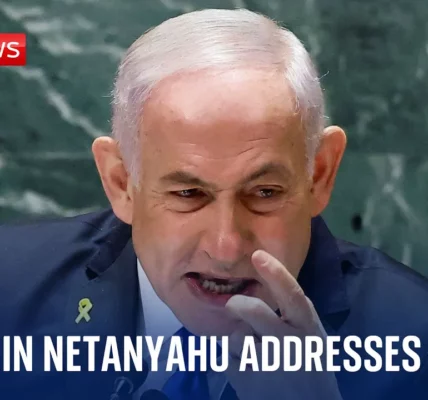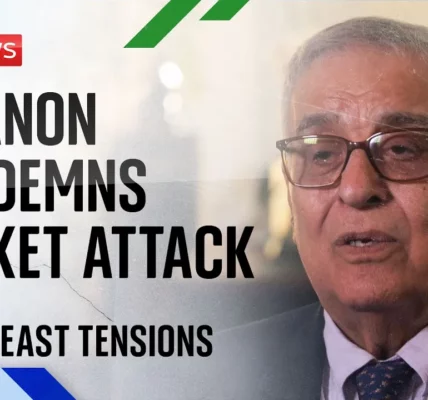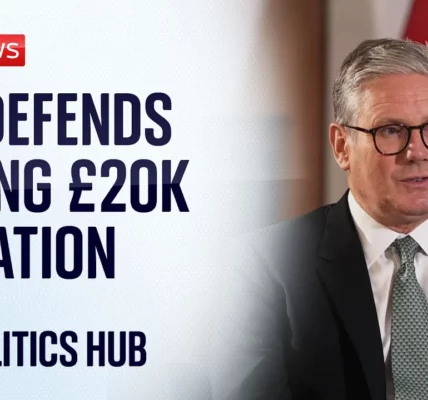Secretary Blinken Discusses Iran’s Missile Supply to Russia and Geopolitical Strategies

This article delves into Secretary Antony Blinken’s recent remarks regarding Iran’s provision of ballistic missiles to Russia, the implications for Ukraine, and the broader geopolitical strategies at play in the Middle East. Gain insights into the U.S. response and the ongoing diplomatic efforts to resolve these critical issues.
Introduction
In a recent interview, Secretary of State Antony Blinken addressed the concerning development of Iran supplying ballistic missiles to Russia, which are reportedly intended for use against Ukrainian targets. This situation raises critical questions about the effectiveness of economic sanctions on Iran and the broader implications for U.S. foreign policy. As international tensions escalate, understanding the intricate dynamics between these countries is essential for grasping the current geopolitical landscape.
Iran’s Ballistic Missile Supply to Russia
Secretary Blinken highlighted the strategic significance of Iran’s actions in providing ballistic missiles to Russia. This decision not only emboldens Russia’s military capabilities but also poses a direct threat to Ukraine and its civilian infrastructure. The implications of these missile transfers extend beyond immediate military concerns, affecting regional stability and international relations.
The Nature of the Ballistic Missiles
The specific type of missiles being supplied by Iran to Russia are characterized by their relatively short range. However, their deployment allows Russian forces to conserve their long-range missile stockpiles for targeting deeper into Ukrainian territory, including critical civilian and energy infrastructure. This shift in strategy could lead to increased devastation across Ukraine.
U.S. Response and Economic Sanctions
In response to Iran’s actions, the United States, along with European partners, has indicated a commitment to impose additional economic sanctions on Iran. These measures aim to deter further military collaboration between Iran and Russia. However, questions arise regarding the efficacy of sanctions as a long-term strategy.
- Increased sanctions on Iranian individuals and entities involved in missile development.
- Heightened diplomatic efforts to rally international support against Iran’s actions.
- Monitoring and intelligence sharing to track missile transfers and military cooperation.
Assessing the Effectiveness of Economic Sanctions
While economic sanctions have historically been a tool of foreign policy, their effectiveness in altering state behavior is often debated. In the case of Iran, the impact of sanctions is compounded by the nation’s ongoing economic struggles and its leadership’s desire for relief.
Iran’s Economic Situation
The Iranian economy is currently under significant strain due to existing sanctions and the mismanagement of resources. Secretary Blinken pointed out that Iran’s leadership is seeking economic relief, yet their actions—such as supplying missiles to Russia—contradict their stated goals of improving international relations.
Long-term Strategy for Iran
Developing a comprehensive strategy to address Iran’s behavior requires a multifaceted approach, including:
- Strengthening alliances with countries in the region to present a unified front.
- Engaging in diplomatic negotiations that address Iran’s security concerns while ensuring accountability for its actions.
- Promoting economic opportunities that encourage Iran to shift its focus from military collaboration to constructive international engagement.
The Broader Geopolitical Context
The situation in Ukraine and Iran’s involvement cannot be viewed in isolation. The geopolitical landscape includes various actors, including Russia, Ukraine, and neighboring Middle Eastern countries. Understanding these dynamics is crucial for predicting future developments.
Impact on Ukraine
Ukraine’s response to the missile threat from Russia is critical. The support from over 50 countries has been pivotal in bolstering Ukraine’s defense capabilities. Ongoing military assistance and intelligence sharing are essential components of this support.
The Middle East Conflict
In addition to the situation in Ukraine, the Middle East remains a focal point of U.S. foreign policy. Blinken emphasized the importance of pursuing a ceasefire agreement involving Israel and Palestine as a means to stabilize the region. This includes addressing humanitarian concerns and fostering dialogue between conflicting parties.
Conclusion
Secretary Blinken’s remarks underline the complexity of the current geopolitical situation involving Iran, Russia, Ukraine, and the Middle East. The U.S. strategy must adapt to these evolving challenges, balancing sanctions with diplomatic efforts to foster stability and peace. As the world watches these developments unfold, it is imperative to support initiatives that promote dialogue and cooperation among nations. For further insights on U.S. foreign policy and its implications, visit our related articles on geopolitical strategies and international relations.
“`




